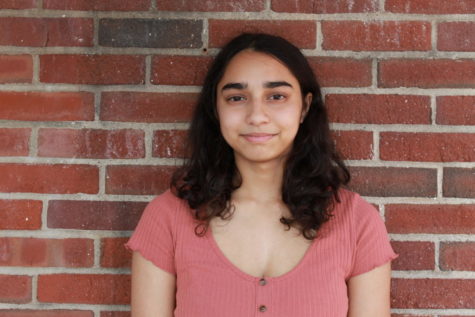Why the Asian-American community has to stand in solidarity with Black Lives Matter
June 17, 2020
Right in front of the scene where George Floyd was murdered by Derek Chauvin, Tou Thao, an Asian-American police officer of Hmong descent, heard the struggles of George Floyd right beside him. Instead of taking action, he stood in front of the scene with his back turned, blocking off the scene.
The situation began with George Floyd shopping at a store in Minneapolis: Cup Foods. Mahmoud Abummayyeleh, an Arab-American, is the owner of Cup Foods, where one of his employees called the police on George Floyd over a suspected counterfeit twenty dollar bill.
While George Floyd was not actively resisting in any way, the police officers at the scene were hostile – they placed him in handcuffs and for eight minutes and forty-six seconds, Derek Chauvin placed his knee on George Floyd’s neck amidst his cries for help.
George Floyd was wrongly murdered and in turn, the killing sparked protests across the country and many have shown their solidarity for the Black Lives Matter movement. With this movement growing exponentially at the moment, I believe one problem that is overlooked is the anti-blackness within the Asian-American community.
In an instance like the George Floyd situation, no one can be a bystander to the police brutality that happened, especially those at the scene and minorities. Minorities like Asian-Americans can not turn a blind eye to the discrimination that takes place within the community. Tou Thao and Mahmoud Abummayyeleh were obviously not the ones to kill George Floyd, but they have to be the ones to stand up against the discrimination and murder that happened right before their eyes.
I can attest to the discrimination within the community, as I am South Asian. Nowadays, I feel as if people assume that if you are racist, you show it in the most grotesque manner but many are racist in a more casual way – which isn’t any better.
Bollywood stars such as Priyanka Chopra and Sonam Kapoor have voiced their support for the Black community on social media, yet they promote skin-lightening products, such as Garnier Skin Bleaching. These actresses contribute to a society where lighter skin prevails and dark skin is looked down upon. Simply posting support on Instagram for the Black community is not enough anymore. At this point, actions speak louder than words, and we all have to be actively anti-racist.
Across other Asian countries such as China or Korea, the narrative is not any different, as many look down upon dark skin and appropriate culture. In the city of Guangzhou in China, videos have been shared where Black people are prohibited from entering stores, such as a video at a McDonalds in China with a sign that says Black people cannot enter. Mamamoo, a South Korean pop group, was in a controversy where they did blackface. One member of another Korean pop group, Red Velvet, was in a controversy where she ignorantly did an imitation of a “stereotypical black person.” The K-Pop industry in itself has had many accounts of cultural appropriation and discrimination. Besides entertainment, racism can be seen at a smaller level. In South Asian culture, family members will often make fun of others for being dark-skinned with the word “kallu.”
When considering how much Black Americans have supported Asians, it seems silly to see this discrimination take place. In 1965, Martin Luther King Jr. played a role in getting the president, Lyndon B. Johnson, to sign the Immigration and Nationality Act of 1965. This act led to equal treatment of immigration regardless of race. Because of this act, many citizens from Asian countries were able to immigrate to the United States to create a better life.
Every minority has to be against the common oppressor and fight the racism that still exists today. Black people have created changes that helped other minorities, it is only fitting that we show our solidarity for them. We as a community have to educate ignorant family members and actively be anti-racist.



